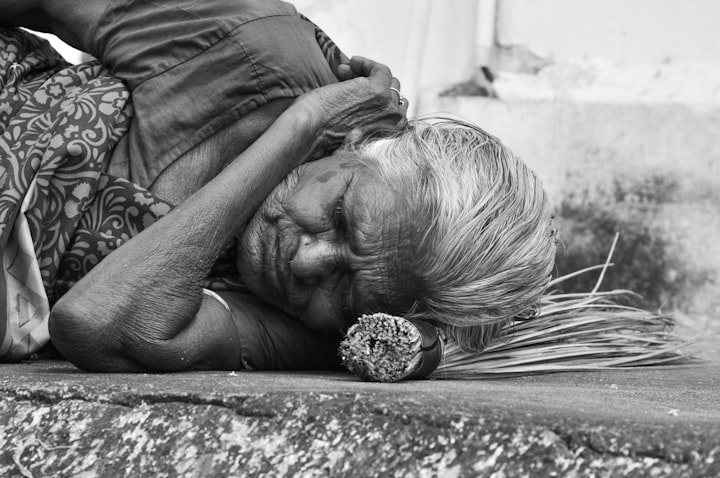
Hi. So I woke up one morning and found out that my country (India) was placed under lockdown due to Covid-19 and that we weren't allowed to move out. I guess many of you would have experienced the same in your countries. This virus has taken us all aback and our governments have been reeling under immense pressure to somehow stop this pandemic on one hand and save people's lives and to help the plummeting economies on the other hand.
Our leaders here in India were faced with the same dilemma in March when we decided to put 1.3 billion people under lockdown. Roads and streets lay silent, shutters were drawn close and markets eerily barren. We started our lockdown around the 25th of March and it is 1st of June today and we are at last starting to open up now. The economy is in crisis after almost 2 months of complete shutdown. Businesses are going bankrupt and some estimates suggest that more than 100 million workers in the organised and unorganised sectors have either suffered a pay cut of up to 50 to 70% or have been unemployed.
As the economy continues to go into a downfall and businesses struggle to get back on track there is another crisis that this massive country is currently experiencing. That of reverse migration of all these unemployed workers from the cities that they worked in, to their native villages in rural areas. In the last couple of weeks, all across India, you could see lakhs of these migrant labourers walking on foot on national highways for hundreds of kilometres just to reach their home. These were the people that worked in small and medium factories, worker as waiters, tailors, plumbers, freelancers, domestic help, vegetable vendors, street food vendors, small shop owners, carpenters, daily wage workers, you name it. And why on foot you ask! Well, because during the lockdown there was a complete shutdown of inter-state transportation services including buses, cabs or even the great Indian Railways. Several of them took lifts from any vehicle they could come across and even paid exorbitant sums of money to anyone who could ferry them home. Many crammed onto dumper trucks, many boarded tempos. Others sat on the roofs of overcrowded trucks and buses or any transportation they could get. Some even bicycled. The figures probably ran into million across the country.
So how did the situation become so grave and these workers became so desperate that they were ready to walk hundreds of kilometres to their homes in the middle of this pandemic with absolute disregard for any form of social distancing? The problem began when we first announced the lockdown. These people who would have otherwise earned their daily wages were forced to stay at home. Now it is important to understand that they belong to the lower strata of the economic pyramid. They sustain on daily wages and have little to no savings. Therefore when they were forced to shun work for so long their savings were wiped out. Though the government made rampant efforts to provide for their food and basic amenities through community kitchens and distribution of free ration, but in a population of 1.3 billion, it just wasn't enough. As the lockdown got extended and their savings got thinner, their patience started to run dry. This pushed these migrants into a situation where they had no money left, no food to eat, no mode of public transport to reach home and absolute uncertainty about the future of work and sustainability in this pandemic. They thus had to make the tough call of either to stay and hope for the government to help which they were already doing for a long time or to grab whatever they could and just start walking.
Lakhs of these migrants including men, women, children, elderly, all could be seen across the country walking on the highways. Some were lucky enough to get lifts on trucks and tractors but most of them weren't.
In India, the majority of the workforce is employed in the unorganised sector. Most of these workers are underpaid and overworked. On top of this majority of them are devoid of any form of social security net. It is like they earn on a daily basis, live hand to mouth and have almost nothing to fall back upon during times of such crisis. This is precisely the reason that these migrant labourers were forced to undergo such extreme stresses and undertake such daunting journeys. Quite a few of them lost their lives on the way I must tell you.
This is not the only problem that they'll face. Another monster awaits them back at their villages. Our village economy is mostly agricultural and not equipped to employ or sustain such vast numbers of returning labourers. This is precisely the reason these men and women moved to urban centres in the first place. To find work and better employment opportunities. There is definitely going to be a shortage of work and large scale unemployment or disguised unemployment once they pour back into their villages.
So why have our societies evolved in a way that most of the wealth, as well as the facilities, are only for a top few? Why even in the 21st century a large chunk of our population lacks any form of social security? Why is it that communities that have historically been marginalised persist to be the most vulnerable? Why do we as a society have not been able to take care of those who build the foundations of the world that we live in? Why do inequalities still exist?
While you and I ponder upon these questions a large number of these labourers are still walking on our roads with blisters on their feet. These flaws and inequalities are not something that has been created today during this pandemic. They have existed historically and it is just that this pandemic has highlighted them and brought them out in the open.
Now as the world moves slowly to open itself up after the lockdown and our economies start to crawl back up, it becomes our duty to not to repeat the mistakes of our past. Not to rebuild the flawed systems that existed before. This pandemic provides the perfect opportunity to rethink our societal structure and provide people with what they deserve. Decent work, social security and a dignified life.






Comments
There are no comments for this story
Be the first to respond and start the conversation.